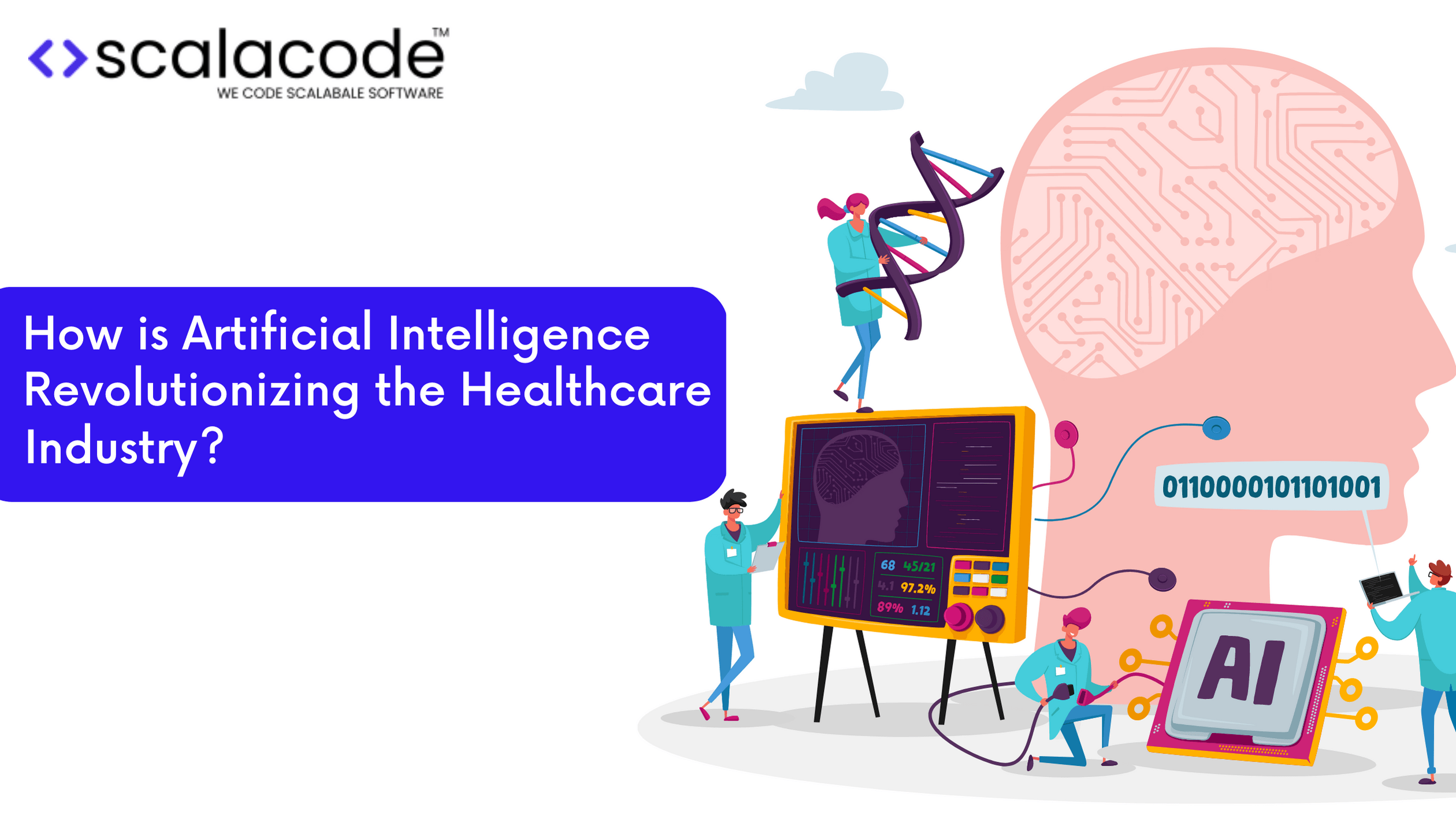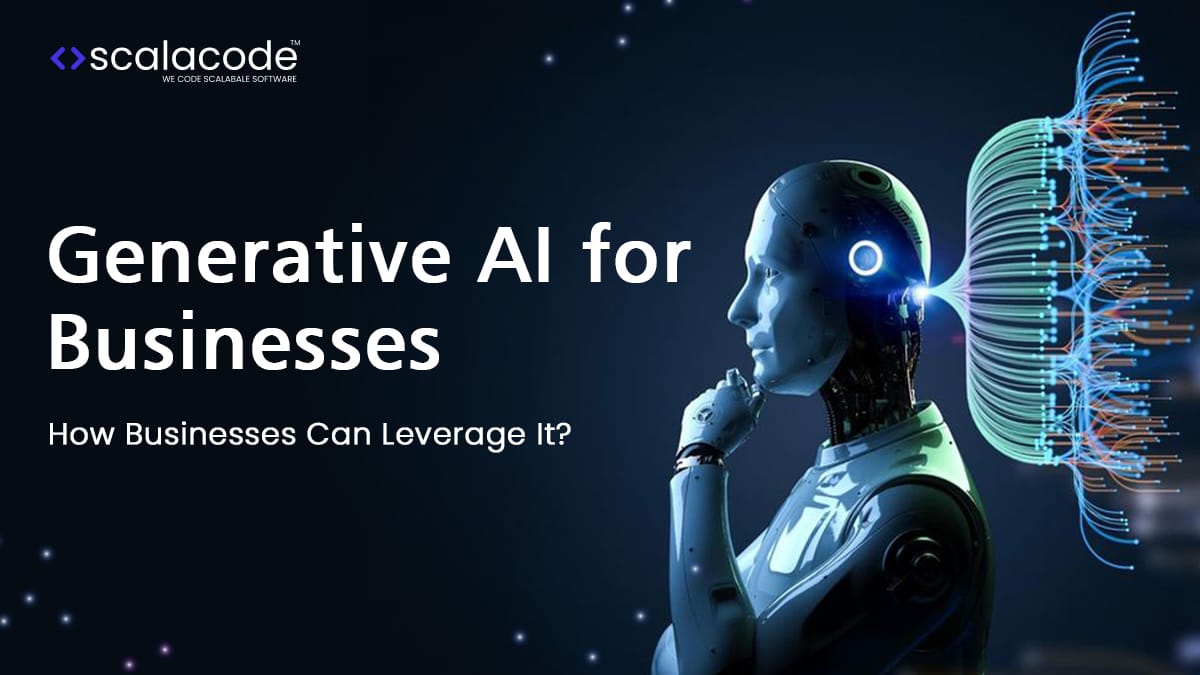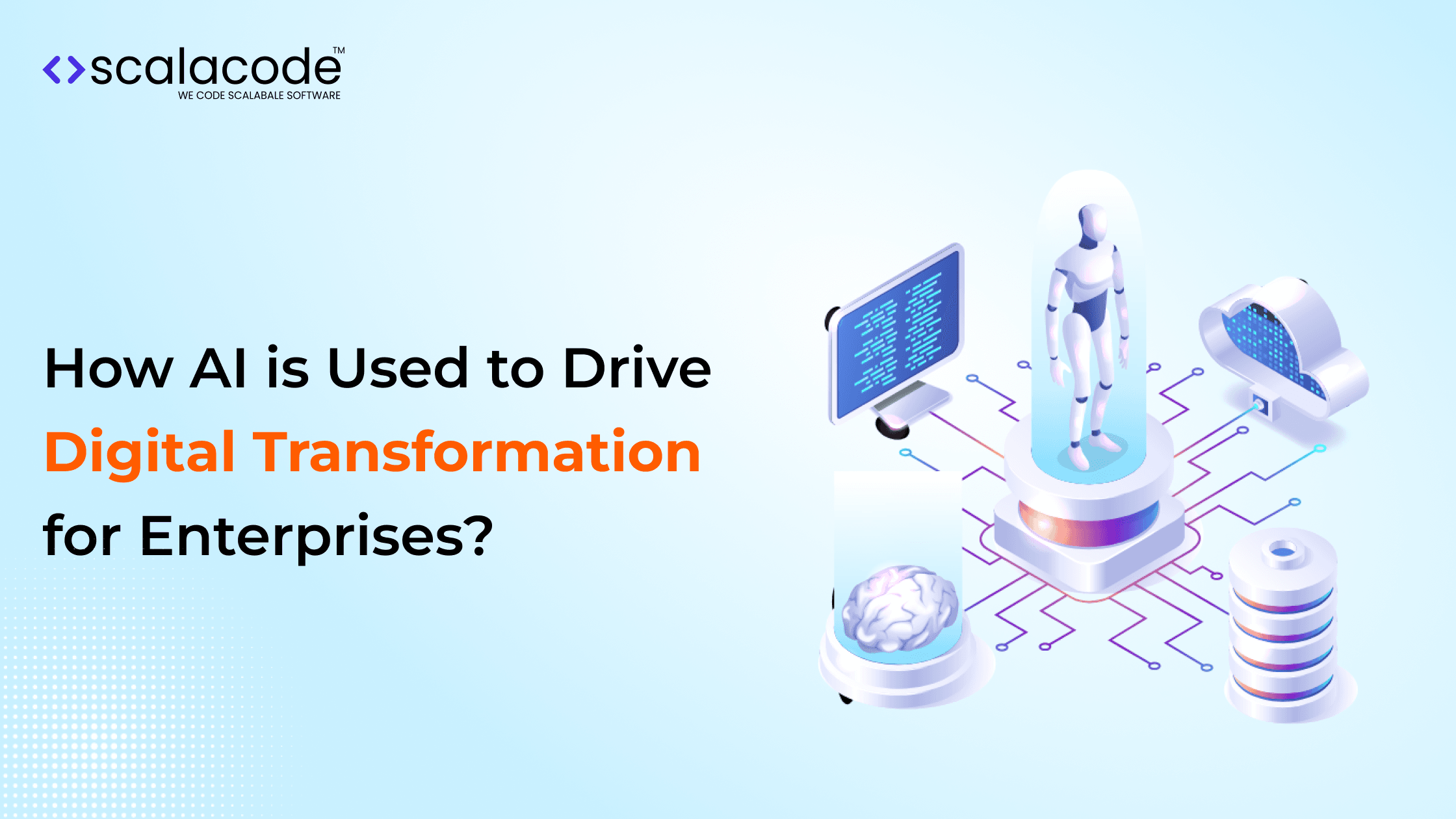From diagnosing the patient to acquiring accurate reports, analyzing the patient’s condition to managing the medical staff and entire management, AI and Machine Learning in healthcare are enabling the industry to drive innovation, faster the treatment cycle, and bring improvement in every aspect of medical or healthcare units.
In continuous advancement and modernization in the healthcare industry, AI (Artificial Intelligence) has been playing a crucial role to ensure smarter analysis and faster medical & healthcare practices.
And this is the reason why many healthcare startups and medical units are leveraging Artificial Intelligence & Machine Learning applications in healthcare. Further, to ensure improved healthcare and equipment accuracy while diagnosing patient conditions and generating reports to reinforce the better treatment ahead, the role of AI in healthcare is significant indeed.
In recent years, the healthcare industry started demanding improved diagnosis, patient care & treatment, and more. Especially, the pandemic encouraged the industry to fulfill the timely demand and support futuristic necessities. Thereby, as a solution, the industry started adopting AI & Machine Learning in healthcare.
So, this blog is created while imbibing the market scope & analysis of AI in healthcare, the challenges involved, how AI has been enabling transformation, the future of AI in the industry, and more.
Global Market Scope & Analysis
By ensuring a successful contribution in every other industry, AI is ready to push the industry to bring revolutionary change, ensure seamless digitization, and drive transformation. Anyhow, with the steadily increasing demand for more efficient, effective, accurate, and personalized services, the industry is ready to adopt AI and ML-based healthcare services.
According to Statista’s report, Artificial Intelligence in the healthcare market is reported as USD 11 billion in the year 2021 and is forecasted to reach USD 188 billion by the year 2030 at a CAGR rate of 37% for the period of the year- 2022 to 2030.
The healthcare industry is adopting AI at a rapid pace due to its ability to automate repetitive tasks, improve accuracy and speed of diagnosis, and reduce costs. The increasing amount of data generated in the healthcare industry and advancements in big data analytics and machine learning algorithms are also contributing to the growth of AI in the healthcare market.
Further, considering the increasing adoption of electronic healthcare records (EHRs), the rising need to reinforce government regulations & global compliance, and more, the healthcare industry is leveraging AI, Machine Learning, and Natural Language Processing, and Robotic Process Automation.
However, the lack of skilled professionals, privacy and security concerns, and resistance to change among healthcare providers are some of the challenges faced by AI in the healthcare industry.
Despite these challenges, the market for AI in healthcare is anticipated to continue growing in the coming years, driven by the increasing demand for advanced healthcare services and technological advancements in the field of AI.
To continue with, let us understand the in-depth industry challenges.
Challenges Faced by the Industry
Although AI has the potential to transform the entire healthcare sector, there are a number of challenges that must be addressed to reach its full potential in healthcare. The healthcare industry faces numerous challenges, including:
Rising Costs
The cost of healthcare continues to increase, making it difficult for many individuals to afford adequate care. However, leveraging AI can help reduce cost in every area.
Aging Population
An aging population means an increased demand for healthcare services, putting pressure on the system. This generates the need for technology advancement i.e. AI and Machine Learning adoption.
Workforce Shortage
There is a shortage of healthcare workers, particularly in rural and underserved areas, leading to inadequate access to care.
Chronic Disease Management
The prevalence of chronic diseases such as diabetes and heart disease is increasing, requiring more resources and effective management strategies.
Data Management
Storing, sharing, and analyzing large amounts of patient data is a significant challenge, as it requires secure and efficient information technology systems.
Quality of Care
Ensuring consistent and high-quality care across the healthcare system is a constant challenge, as there can be disparities in care based on factors such as location, race, and insurance status.
Health Disparities
Health disparities persist based on socio-economic and demographic factors, and addressing these disparities requires systemic changes.
Innovation
Keeping up with new technologies, treatments, and medicines, and integrating them into the healthcare system can be difficult and requires significant investment.
How is AI Revolutionizing the Healthcare Industry?
Artificial Intelligence (AI) has the caliber to revolutionize the healthcare industry by improving patient outcomes, reducing costs, and increasing efficiency. Some of the ways AI is helping to revolutionize the healthcare include:
Diagnosis and Treatment
AI algorithms are being used to assist medical professionals in diagnosing illnesses and selecting the most effective treatments.
Medical Imaging Analysis
AI algorithms ensure smarter utilization to analyze medical images such as -rays, CT scans, and MRIs to identify abnormalities and assist in diagnosis.
Personalized Medicine
AI is enabling healthcare providers to develop more customized/personalized treatment plans for patients taking into account the individual’s genetics, lifestyle, and medical history.
Clinical Decision Support
AI is ensuring its successful contribution in terms of providing real-time decision support to healthcare providers helping them to make informed treatment choices.
Fraud Detection
Healthcare units are leveraging AI algorithms to identify fraud and waste in healthcare billing & insurance, helping to minimize the costs and improve the efficiency level of the entire healthcare ecosystem.
Drug Discovery
Another smarter utilization of AI is being done in drug discovery and development, enabling healthcare individuals to identify new targets for treatment while accelerating the drug development process.
Telemedicine
To support telemedicine, Artificial Intelligence is powering healthcare providers with remote patient monitoring as well as enabling them to diagnose and treat patients remotely.
So, you can see how AI has the potential to transform healthcare by enabling innovative solutions and smarter practices to improve patient care and healthcare outcomes while maximizing the efficiency level and reducing costs. However, it is vital to imbibe ethical considerations and ensure leveraging AI in a responsible and regulated manner.
Different Types of AI in the Healthcare Sector
There are several types of AI that are being used in the healthcare industry, each with its own unique capabilities and applications. The choice of AI technology will depend on the specific requirements of the healthcare organization and the type of task being performed.
Out of the range of different AI types, some of the most common types of AI in healthcare include:
Machine Learning (ML)
This is a type of AI that involves the use of algorithms to learn from data and make predictions based on that data. Machine learning is widely used in healthcare for tasks such as diagnosis, disease prediction, and personalized treatment planning.
Natural Language Processing (NLP)
Natural Language Processing focuses on the interaction between computers and human language. NLP is used in healthcare for tasks such as text analysis, sentiment analysis, and the extraction of information from unstructured data sources.
Computer Vision
Another considerable type of AI involves the use of computer algorithms to analyze and interpret visual information, such as images and videos. Computer vision is used in healthcare for tasks such as image analysis, diagnosis, and monitoring.
Robotics Process Automation (RPA)
Robotics is a type of AI that involves the use of robots and other automated systems to perform tasks in healthcare. Robotics is used in healthcare for tasks such as surgery, rehabilitation, and the delivery of medication.
Expert Systems
Expert systems are AI systems that are designed to mimic the decision-making processes of human experts in a particular field. Expert systems are used in healthcare for tasks such as diagnosis, treatment planning, and drug discovery.
Deep Learning
Deep learning is a type of machine learning that involves the use of deep neural networks to analyze complex data and make predictions. Deep learning is used in healthcare for tasks such as image analysis, speech recognition, and drug discovery.
Future of AI in the Healthcare Sector
The future of AI in healthcare seems very promising, with numerous potential applications that have the potential to transform the healthcare industry. Here are some of the key trends in the future of AI in healthcare:
Increased Adoption
As healthcare organizations continue to recognize the benefits of AI, we can expect to see increased adoption of AI-powered solutions in the healthcare sector.
Improved Diagnosis and Treatment
AI algorithms will continue to improve, leading to more accurate diagnoses and more effective treatments for a wide range of conditions.
Precision Medicine
The use of AI in precision medicine will continue to grow, allowing healthcare organizations to tailor treatments to individual patients based on genetic and other patient-specific data.
Telemedicine
AI will play an increasingly important role in telemedicine, by providing remote monitoring and diagnosis, and enabling virtual consultations between patients and healthcare professionals.
Automation and Efficiency
AI will help healthcare organizations to automate and optimize a range of processes, from supply chain management to patient scheduling, leading to improved efficiency and cost savings.
Data Management and Analytics
AI will continue to revolutionize the management and analysis of medical data, enabling healthcare organizations to make data-driven decisions and improve patient outcomes.
Ethical and Regulatory Challenges
As the use of AI in healthcare continues to grow, it will be important for healthcare organizations to address ethical and regulatory challenges, including data privacy and the use of AI in decision-making processes.
Thus, it can be said that the future of AI in healthcare is bright, with numerous potential applications that have the potential to transform the healthcare industry. As AI continues to evolve, it will play an increasingly important role in improving the delivery of healthcare services as well as patient outcomes.
How ScalaCode Can Help You with AI Applications in Healthcare?
Partnering with ScalaCode for your AI and Machine Learning applications in healthcare can help you attain project success and support your business to drive AI-Driven practices. Here is what you gain from ScalaCode when it comes to healthcare mobile application development:
AI Consulting
ScalaCode helps you get started with AI by providing consulting services defining your business values and fulfilling your business needs while revealing the opportunity for your healthcare unit.
AI Development
Our experts with high-end experience and exposure to AI, provide expertise in developing AI applications, from prototyping to production, including machine learning models, natural language processing, and computer vision systems.
Data Engineering
Our proficient mobile app developers help you build and manage your data infrastructure, including data collection, storage, processing, and analysis, to support your AI initiatives as well as futuristic AI goals.
Integration and Deployment
When it comes to integration and deployment, we help you integrate your AI solutions into your existing systems and deploy them in a scalable and reliable manner.
Maintenance and Support
We also provide ongoing maintenance and support services to keep your AI solutions running smoothly and address any issues that may arise.
Overall, ScalaCode helps you on your AI journey by providing expertise, resources, and support to help you succeed in your AI initiatives.
Final Words
In conclusion, AI is transforming the healthcare industry in many ways by improving diagnosis and treatment, enabling personalized medicine, and reducing costs through fraud detection. The growing demand for more efficient and effective healthcare services, combined with advancements in big data analytics and machine learning algorithms, is driving the rapid adoption of AI in the healthcare industry.
However, there are also challenges to the widespread adoption of AI in healthcare, such as a lack of skilled professionals, privacy and security concerns, and resistance to change among healthcare providers.
Despite these challenges, the market for AI in healthcare is expected to continue growing in the coming years, and AI is likely to play an increasingly important role in improving patient outcomes and transforming the healthcare industry.
Overall, AI has the potential to revolutionize the way healthcare is delivered and improve patient outcomes, but it is important to consider the ethical and regulatory implications of its use in healthcare.
As with any new technology, it is important to balance the benefits of AI with the potential risks and to ensure that it is used in a responsible and ethical manner. With the right approach, AI has the potential to greatly improve the quality and accessibility of healthcare for people around the world.



